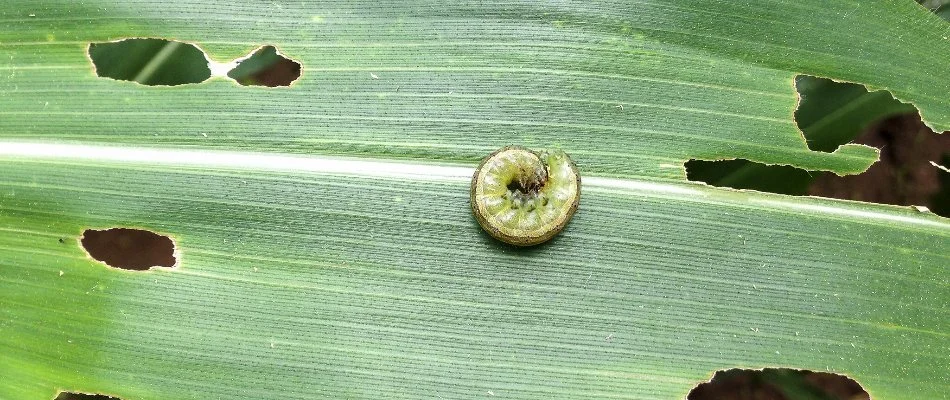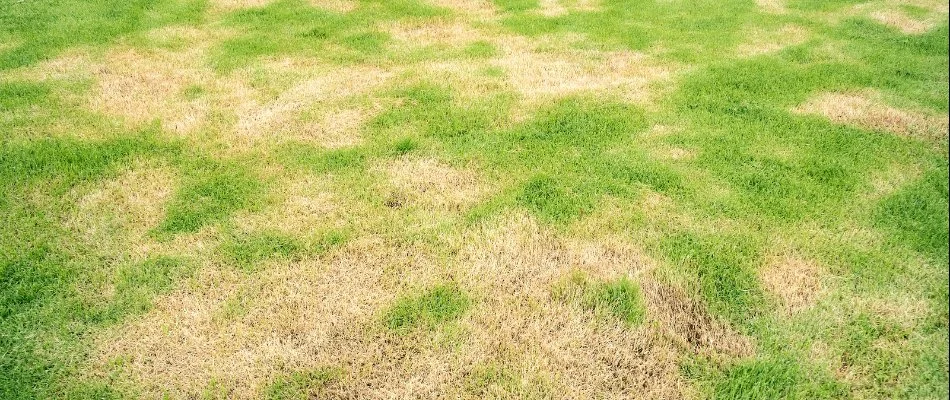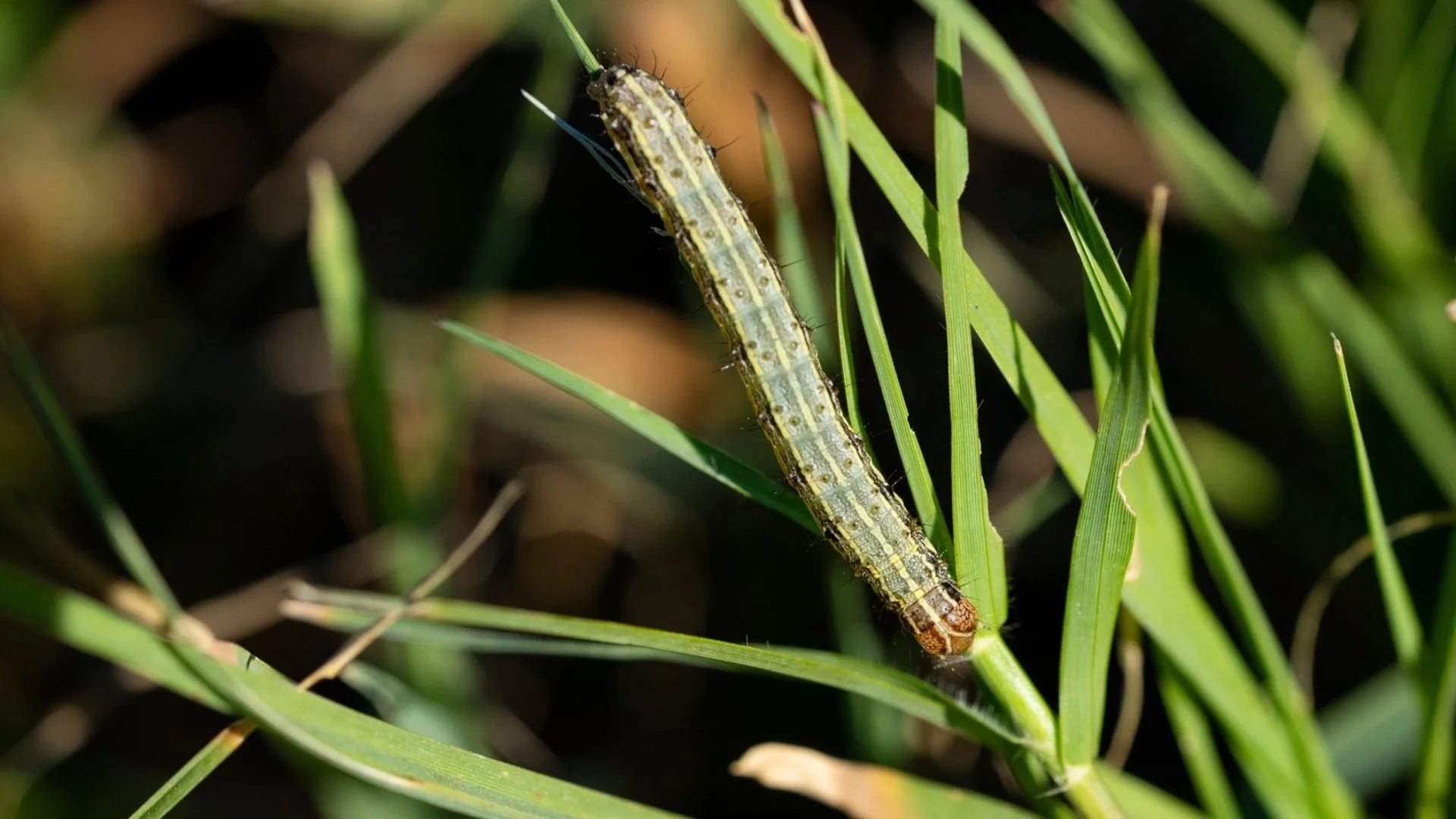Armyworms are a significant threat to lawns and gardens in North Texas, known for their ability to cause extensive damage in a short amount of time. These pests can transform a lush, green landscape into a barren patch of brown overnight. In this guide, we will dive into where armyworms come from, how they affect North Texas lawns, gardens, and trees, and the best pest control strategies to keep your outdoor spaces healthy and vibrant.
Understanding Armyworms in North Texas
Armyworms are the larvae of moths from the Spodoptera species, with the fall armyworm (Spodoptera frugiperda) being the most prevalent in the North Texas region. Despite their name, armyworms are not worms but caterpillars that move across lawns and gardens in large numbers, devouring plants in their path.
North Texas, with its hot summers and mild winters, provides an ideal environment for armyworms. These pests are migratory and typically appear in late summer to early fall when temperatures in the region range between 85°F and 95°F. During this time, they can breed rapidly, leading to severe infestations if not addressed promptly.
Where Do Armyworms Come From?
Armyworms originate from warmer climates like Central and South America and migrate northward as the seasons change. In North Texas, they are often carried by winds and storms, settling in lawns and gardens that offer an abundance of fresh plant material.
The fall armyworm is particularly problematic in North Texas because of the region’s climate, which supports multiple generations of these pests in a single season. Scientific studies have shown that armyworm populations flourish when nighttime temperatures remain above 70°F, a common occurrence in the area during late summer.
Signs of Armyworm Infestation on Your North Texas Lawn and Garden

Recognizing the signs of an armyworm infestation early is crucial to preventing widespread damage to your lawn and garden. Here is what to look for:
Lawn Damage:
- Rapid Browning: Armyworms can cause entire sections of your lawn to turn brown almost overnight. These patches often appear sun-scorched but are the result of armyworms feeding on the grass blades.
- Chewed Grass: Look closely at the grass blades for signs of chewing. Armyworms eat the tender parts of the grass, leaving behind jagged edges and a thinning lawn.
- Visible Caterpillars: You may see small, striped caterpillars on the lawn, particularly in the early morning or late evening when they are most active.
Garden and Plant Damage:
- Defoliated Plants: Armyworms can decimate garden plants, leaving behind leaves with large holes or stripped bare stems. This is especially common in vegetable gardens.
- Wilting and Weakening: Plants that have been attacked by armyworms may begin to wilt and weaken, as the pests strip them of vital foliage.
Tree Damage:
- Young Trees at Risk: While mature trees are safe, young, or newly planted trees can suffer from armyworm feeding, particularly on their tender leaves.
- Infested Branches: Check the lower branches of trees for visible larvae, especially during peak armyworm season.
The Impact of Armyworms on North Texas Lawns and Gardens

Armyworms are a major concern for homeowners in North Texas because of their rapid and destructive feeding habits. They primarily target popular lawn grasses such as Bermuda, fescue, and rye, which are commonly found in the region’s residential and commercial landscapes.
The damage caused by armyworms goes beyond aesthetics. A severe infestation can weaken your lawn’s root system, making it more susceptible to other pests and diseases. For gardeners, the loss of vegetable plants and ornamental foliage can be devastating, impacting both the beauty and productivity of your outdoor space.
Purple Care’s Pest Control Solutions for Armyworms
At Purple Care, we specialize in protecting North Texas lawns and gardens from the devastating effects of armyworms. Our expert pest control services are designed to not only eliminate existing infestations but also to prevent future outbreaks.
- Geo-Targeted Inspections: Our team is familiar with the specific conditions that make North Texas lawns susceptible to armyworm infestations. We conduct thorough inspections to identify early signs of these pests, allowing us to act before they spread.
- Customized Pest Control Plans: Every lawn and garden is unique, and our pest control plans are tailored to meet the specific needs of your property. We use a combination of safe, effective insecticides and integrated pest management techniques to target armyworms at every stage of their life cycle.
- Lawn Care and Maintenance: A healthy lawn is your best defense against pests. Purple Care offers comprehensive lawn care services, including fertilization, weed control, aeration, soil amendments and lawn and fungus control to keep your grass strong and less attractive to armyworms.
- Preventative Treatments: During peak armyworm season in North Texas, we offer preventative treatments that create a protective barrier around your lawn and garden. These treatments are designed to deter armyworms from settling and breeding in your landscape.
- Ongoing Support: Pest control is not a one-time job. Purple Care provides ongoing support and maintenance to ensure your lawn remains free from armyworms and other common pests. We offer follow-up visits and treatments as needed to keep your property looking its best year-round.
Why North Texas Homeowners Choose Purple Care
North Texas homeowners trust Purple Care because of our deep understanding of the region’s unique pest challenges. Our team provides top-tier pest control services that protect your investment in your lawn and garden. Whether you are dealing with armyworms, grubs, or other lawn pests, we have the expertise to deliver results.
Conclusion
Armyworms are a significant threat to lawns and gardens in North Texas, but with the right knowledge and professional pest control services, you can protect your landscape from their destructive path. Recognizing the signs of an infestation and taking prompt action is key to maintaining a healthy, vibrant lawn.
At Purple Care, we are committed to helping you keep your North Texas lawn, garden, and trees free from pests like armyworms. Contact us today at (817) 880-6052 to schedule an inspection and learn more about our comprehensive pest control solutions designed specifically for the North Texas region.




Comments (0)
Thanks for your comment!
Thanks for your feedback! Your comments have been successfully submitted! Please note, all comments require admin approval prior to display.
Error submitting comment!
There is a problem with your comment, please see below and try again.